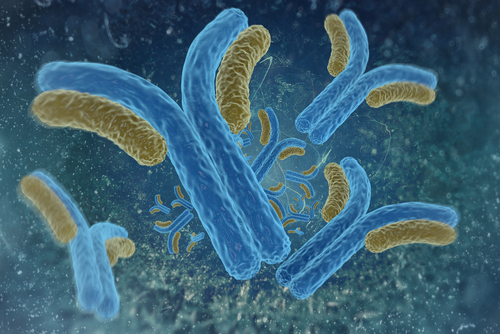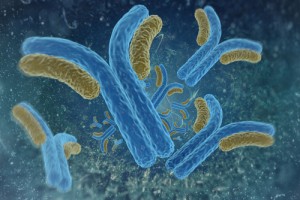Cystic Fibrosis Patients At Risk From Bacterial Strains Resistant To Antibodies, According To Study
Written by |

 Cystic Fibrosis is a serious genetic disease, with 1,000 new cases registered each year and more than 30,000 people affected in the US alone.
Cystic Fibrosis is a serious genetic disease, with 1,000 new cases registered each year and more than 30,000 people affected in the US alone.
Because the disease gradually debilitates lung function, it increases the probabilities of developing a lung infection, causing a major impact on a patient’s quality of life and ultimately leading to a premature death.
In the context of natural infection, antibody production is an essential component of protection against pathogenic threats, although it is known that some viruses trigger humoral immunity, favoring the development of infection and negatively impacting patient’s health. However, antibody-dependent enhancement of bacterial infections was a question yet to be answered by research.
In a recent study, entitled “Increased severity of respiratory infections associated with elevated anti-LPS IgG2 which inhibits serum bactericidal killing” and published in the Journal of Experimental Medicine, the authors showed that several subjects suffering from bronchiectasis and Pseudomonas aeruginosa bacterial lung infections, two major infections affecting cystic fibrosis patients, produce antibodies that can protect the bacterium from complement-mediated killing.
The researchers showed that bacterial strains resistant to antibody-induced killing were producers of a particular type of lipopolysaccharides (LPS) that resulted in the generation of abnormal IgG2 antibodies capable of shielding the bacteria from normal, efficient antibodies that are utilized to resolve the infection.
Moreover, the team observed that infected patients unable to kill P. aeruginosa with IgG2 antibodies had poorer respiratory function than those who didn’t produce the inhibitory antibody.
“The impact of bronchiectasis is absolutely massive. In more severe cases patients can be bed-ridden for months and are constantly suffering from breathlessness, coughing and chest pain. The simplest everyday tasks that we take for granted can prove to be exhausting to the point of becoming impossible,” said senior author Ian Henderson, PhD, University of Birmingham, UK, in a Health News Interview.
[adrotate group=”1″]
These results will help unveil the mechanisms behind immune protection of natural infections, thus contributing to the development of new vaccines that can avoid the induction of undesired antibodies in several chronic infections.
“What this means, fundamentally, is that we have to proceed with real caution in developing treatments. Three attempts have been made to develop vaccines targeting the LPS molecule — this extra-long sugar — and each time it has failed. The children receiving the vaccine actually developed a more severe disease than those who didn’t. Our results reveal why this would be the case. These vaccines would cause the immune system to provide so many antibodies that end up working alongside the LPS and prevent the bacteria from being killed,” added Dr. Henderson in the interview.






